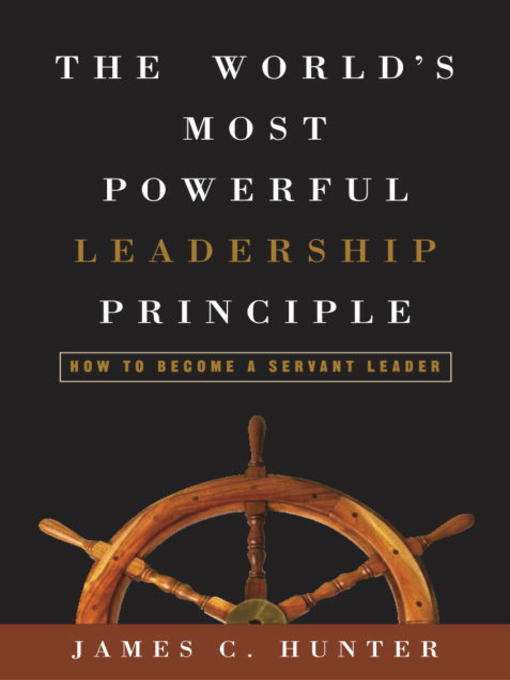
The World's Most Powerful Leadership Principle
How to Become a Servant Leader
- اطلاعات
- نقد و بررسی
- دیدگاه کاربران
نقد و بررسی

June 28, 2004
Readers who benefited from Hunter's bestselling 2001 parable The Servant: A Simple Story About the True Essence of Leadership will enjoy this follow-up, which fleshes out some of the principles of servant leadership discussed in the earlier book. (For that reason, it also works as a stand-alone book for those who have not read The Servant or those who find straight advice literature more helpful than allegories.) Effective leadership, Hunter states, is about relationships, not coercive power; leadership development and character development are one and the same. The book's ideas are solid and the anecdotes helpful: Hunter trots out examples ranging from Southwest Airlines and General Electric to the U.S. military and professional football. The book draws on Christian themes but in a soft, understated way. One strong element is Hunter's attention to the history of different management styles in the 20th century, assessing what worked at the time and what needs to change for our era. Since business books tend to be myopically ahistorical, Hunter's glimpses of the past are refreshing and instructive. While some readers will be put off by the book's oral-style presentation-complete with overused exclamation points and rhetorical questions-others may find that the style contributes to the book's conversational and accessible tone.

March 15, 2004
Hunter, a training consultant and author of The Servant
, offers a practical guide for people who want to become a servant leader: "A person of character who is skilled in influencing and inspiring others to enthusiastically contribute their hearts, minds and other resources toward goals identified as being for the common good." Citing his own experiences, those of his clients as well as some historical figures, Hunter explains his view of how leaders should behave. The most effective leader is a morally aware individual who focuses on helping others succeed, rather than simply handing down decisions. It's essential, says Hunter, that leaders maintain healthy relationships with their colleagues and be ready to turn corporate hierarchies upside down. With supporting quotes from poets, psychiatrists and Christopher Reeve, Hunter says that helping others enables people to overcome their own weaknesses and become better individuals and leaders. The writing is clear, and Hunter's message may well appeal to many people weary of traditional corporations that have been affected by recent ethical scandals. But in the end, there's not enough substance to distinguish this book from the countless other leadership tomes available. Hunter's inclusion of so many random quotes from Zsa Zsa Gabor to George Washington Carver doesn't enhance this book's value to corporate executives.

May 1, 2004
Hunter, observing our post-9/11 environment, recent corporate scandals, and the large number of managers who are not leaders, offers his thoughts on what he calls a servant leader, "a person of character who is skilled in influencing and inspiring others to enthusiastically contribute their hearts, minds and other resources toward goals identified as being for the common good." With a reference to his religious faith and prayer, the author sees leadership's spiritual underpinnings. We learn that leadership is an acquired skill and is synonymous with influence, while character is moral maturity in action: doing the right thing regardless of the cost. Hunter offers important lessons, which he has learned from successful organizations, including selecting workers very carefully, finding ways to make work more challenging, compensating people fairly, demanding excellence and accountability, training people well, and building community. The need for effective leadership has never been greater in our twenty-first-century society, and particularly in our workplaces.(Reprinted with permission of Booklist, copyright 2004, American Library Association.)




دیدگاه کاربران